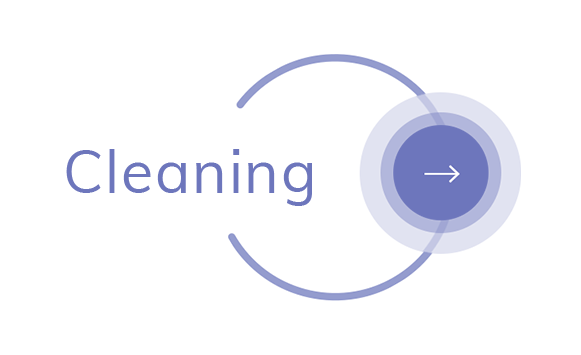Children's oral hygiene
Specific care for babies and children
Every age requires specific care to respond to the different physiological conditions to which the mouth is subjected and to thereby ensure its proper development.
Specific care for babies and children
Every age requires specific care to respond to the different physiological conditions to which the mouth is subjected and to thereby ensure its proper development.
Tips for maintaining proper oral health:
- Visit the dentist when the first tooth appears and at least once a year thereafter to prevent or correct any oral disease or disorder.
- Avoid excessive exposure to foods containing a high amount of sugar, especially those with a soft and sticky consistency.
- Avoid eating between meals: it is recommended to have 5 meals and to avoid snacking in-between.
- Prevent saliva contamination from parents to children by avoiding some simple habits such as cleaning baby’s pacifier with your mouth or blowing directly on baby’s food to cool it down
As in adults, excess oral biofilm (dental plaque) in the oral cavity can cause diseases including cavities and/or gingivitis.
Caries
According to a report by the WHO from 2004, dental caries affects between 60% and 90% of school children.
Childhood caries causes a series sequelae, such as malocclusions on the short-term and infections, aesthetic problems, feeding difficulties, as well as medical, emotional and financial repercussions (treatment costs) on the long term. Therefore, it is very important to establish good oral hygiene habits from a young age, and thus establish a trend of interproximal caries reduction among adolescents.
Gingivitis
Gingivitis mainly appears during puberty, due to hormonal changes. It is prevented by removing oral biofilm through careful brushing, regular interdental hygiene and also detecting and controlling dental malocclusions.
During the first 12 years of life, the mouth endures great changes. Every age requires specific care to respond to the different physiological situations which the oral cavity undergoes and to thus ensure its proper development. Good oral hygiene should start at a younger age than is usually believed. Oral cleaning during childhood, together with acquiring the habit of its maintenance, will result in adults being able to conserve their teeth for their entire lives. Therefore, it is important for this practice to start from birth, without waiting for the first teeth to appear. This way, the baby's mouth is kept clean of debris, and the baby becomes accustomed to this habit and caries can be prevented.

Brush your teeth at least twice a day:
- The brush should be appropriate for the child's age and should have a specific head design to fit a child’s mouth, a specific handle design to fit the hand of the person who will carry out the hygiene and soft bristles with rounded tips.
Use of dental gels:
- From 0 to 2 years it is recommended to use gel ointments to calm the gums during the eruption of the first teeth
- After 2 years, brushing should be supplemented with dental gel that has an age-specific fluoride concentration.
Use dental floss or tape:
- Flossing is an essential part of proper oral cleaning which removes the bacterial plaque accumulated in the interproximal spaces thereby preventing the risk of interdental caries.